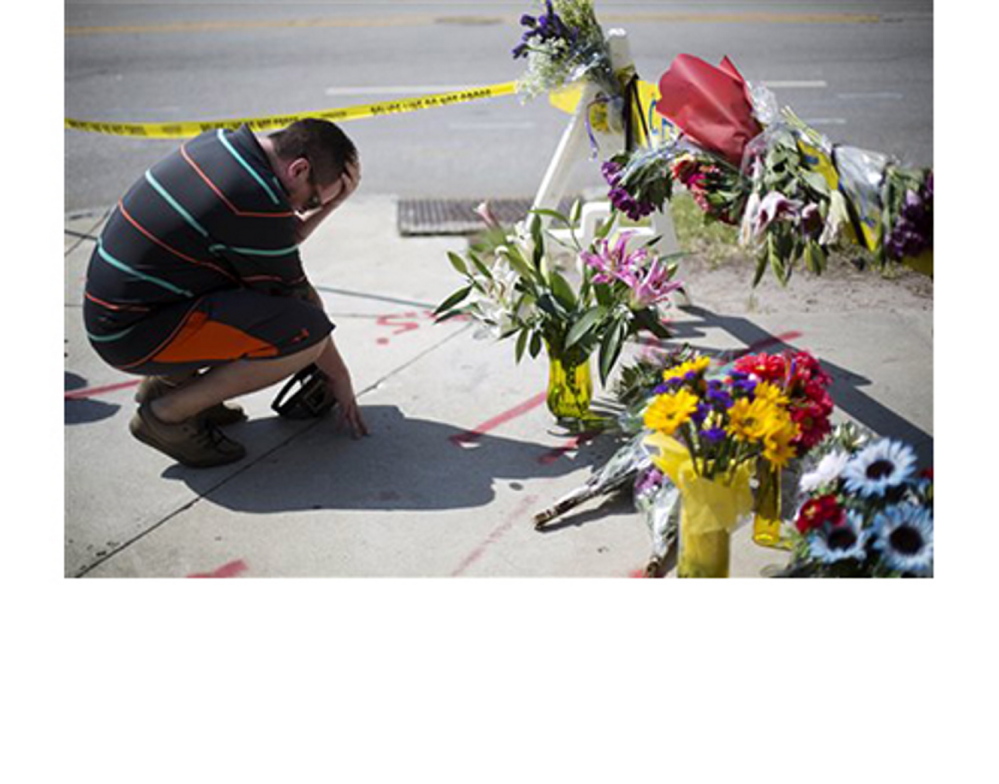The more we learn about the young white man arrested in the massacre Wednesday night of nine people at a historic black Charleston, South Carolina, church, the more that people will want to sift through his background for some bit of personal information that makes him different from everyone else.
But 21-year-old Dylann Storm Roof is actually just like the rest of us in many ways. He was born and raised in a nation that was founded on slavery and that has yet to achieve racial justice and parity. And the mass killing he is accused of carrying out was not a random, isolated event. It was the latest in a long series of acts of racial violence.
After Roof’s arrest Thursday, coverage shifted focus to speculation over his whereabouts to speculation about whether he has a mental illness. Even if he did, however, that wouldn’t explain what happened at the Emanuel AME Church. What we know so far of the case supports a much darker and more widespread affliction: the belief that black people are inferior and that the wrongs done to them don’t matter.
Granted, Roof may be at the extreme end of a continuum. It’s rare to see someone in a jacket like the one Roof wore in a photo on his now-defunct Facebook account: It was decorated with the flags of two former white supremacist regimes (apartheid-era South Africa and and Rhodesia, now known as Zimbabwe).
Roof, though, grew up in a state where the idea of black people as second-class citizens is implicitly endorsed at an official level. The state’s displayed the battle flag of the Confederacy — a symbol of the unwillingness of white Southerners to stop treating black men, women and children as their possessions — for more than 50 years.
The Confederate flag was flown from the Capitol dome from 1962 — where it was intended as a gesture of defiance toward federal civil rights efforts — until 2000, when protests forced its relocation to a less prominent location on the Capitol grounds.
That said, the Southern states have no monopoly on race-based injustice. Historian Anne Farrow, who’s studied connections to slavery in the pre-Civil War North, concluded that the “stolen, uncompensated labor” of enslaved Africans was “the key to America’s early success.”
Emanuel AME Church has seen racist violence before: A co-founder, Denmark Vesey, was executed and the church burned to the ground after white landowners discovered his efforts in 1822 to organize a slave revolt.
The men who razed the church and the man accused of killing the church’s pastor and eight other congregants are linked by deeply rooted hatred — ugly ideas that will continue to flourish until the rest of us recognize it, acknowledge it and refuse to tolerate it.
Send questions/comments to the editors.



Success. Please wait for the page to reload. If the page does not reload within 5 seconds, please refresh the page.
Enter your email and password to access comments.
Hi, to comment on stories you must . This profile is in addition to your subscription and website login.
Already have a commenting profile? .
Invalid username/password.
Please check your email to confirm and complete your registration.
Only subscribers are eligible to post comments. Please subscribe or login first for digital access. Here’s why.
Use the form below to reset your password. When you've submitted your account email, we will send an email with a reset code.